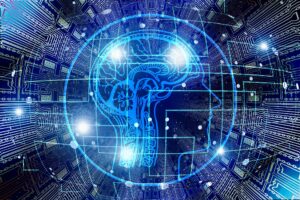Experts call for ethical guidelines for AI use in Philippine education

Experts are calling for the establishment and adoption of ethical guidelines to ensure responsible use of artificial intelligence (AI) in Philippine educational institutions.
“The use of ChatGPT or other similar AI tools in academic settings… calls for policies or guidelines to ensure the ethical use of such or similar technologies,” Joel T. Bautista, information technology officer III at the Philippine Science High School System’s Knowledge Innovation Division, said in a phone message on April 10.
He said that a specific level of acceptance for the integration of AI in education should be established, similar to the process for handling research manuscripts.
“We need proactive, instead of reactive, policies and mechanisms if we want to maximize its benefits,” said Kristine Carmina R. Manaog, legal counsel for the Coordinating Council of Private Education Associations.
Policies “should educate the public about what AI technology is and its implications; mitigate negative risks (such as privacy and security concerns); and curb misuse and abuse (by, for instance, regulating and making AI companies accountable),” she said in a separate phone message on April 10.
According to the United Nations Educational, Scientific and Cultural Organization, crafting AI policies in education must help achieve the sustainable development goal no. 4, which is to “ensure inclusive and equitable quality education and promote lifelong learning opportunities for all.”
“Manuscripts, graphic designs, videos, computer programs, and other academic requirements must be solely created by the student or the group of students as required by the instructor of the course,” the University of the Philippines – Diliman’s Artificial Intelligence Program faculty members said in a statement on Jan. 17.
“However, the use of AI to enhance and facilitate the students’ learning should be encouraged,” the group added.
Schools abroad have started introducing AI literacy to students as young as middle school age by providing textbooks on AI fundamentals, highlighting the increasing prevalence of AI technology in today’s society.
De La Salle University and other learning institutions in the Philippines are providing courses related to AI, while the Department of Science and Technology is collaborating with local universities to promote the development of AI in the country.
AI tools need critical thinking to use, according to Ralph Vincent J. Regalado, chief executive officer and founder of Senti AI, a local artificial intelligence solutions and services company.
“How do you improve teaching? How do you improve the setting up of policies, in terms of working with – instead of removing – ChatGPT?” he said in a recent video interview with BusinessWorld.
Mr. Regalado noted that some professors in the US have already included AI policies in their syllabi.
Students, in turn, “need to make sure that what [an AI tool] produces is also factual.” Fact-checking is necessary because it “has an impact on your output,” he added.
From automated assessments to adaptive teaching and learning, “AI in education has the potential in transforming the way education is delivered,” the Philippine Science High School System’s Mr. Bautista said.
“We have to embrace it and prepare not only our students, but (also our) teachers, to be critical consumers and expert users,” he also said. “This can be done by upskilling them through training and seminars, (as well as) … empowering them with the tools and resources for them to cope with this innovation.” — Patricia B. Mirasol




